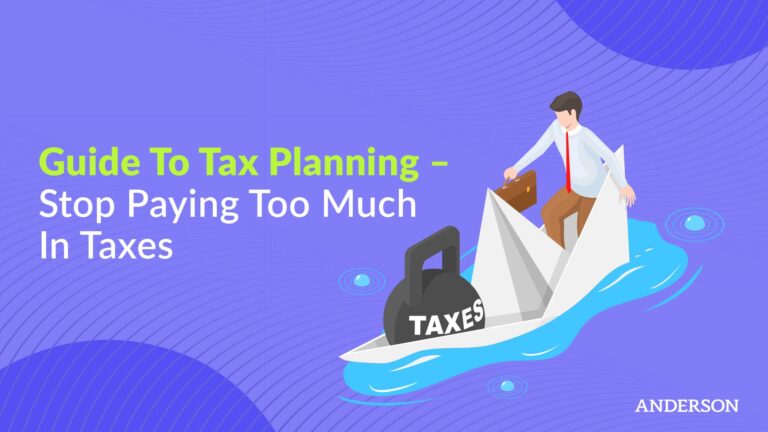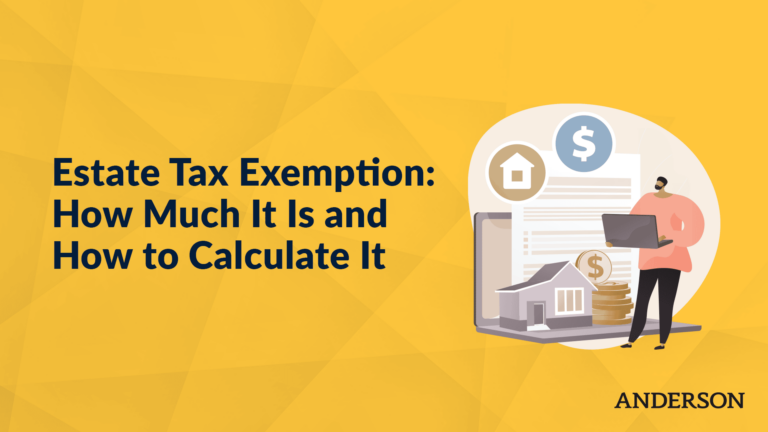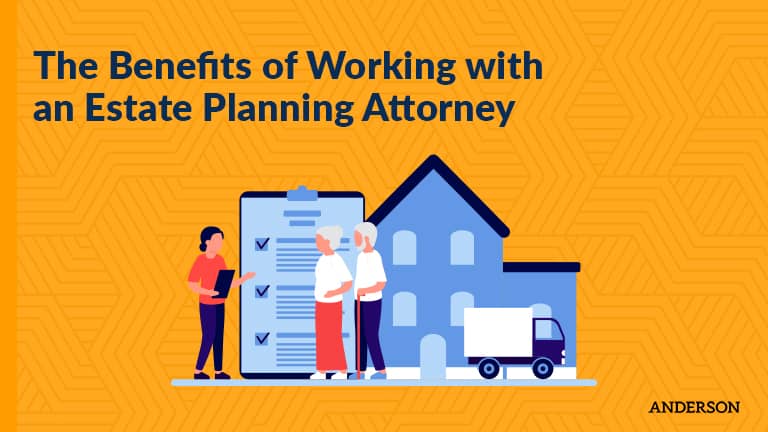Updated September 23, 2021
Planning for the end of your life can be difficult and requires careful consideration. To make matters worse, estate plans may have problems that are not apparent until it is too late. This can lead to overpaying taxes, losing control of what happens to your assets, and leaving your loved ones helpless. Here are some common estate planning mistakes that are important to avoid.
11 Estate Planning Mistakes to Avoid
- Not Having a Plan
- DIY Approach
- Failure to Implement Estate Tax Strategies
- Not Planning for Family, Heirs, and Descendants
- Outdated Beneficiaries and Assets
- Not Funding a Trust
- Choosing the Wrong Executor, Trustee, Co-Trustee, or Personal Representative
- Not Understanding Your Plan
- Failing to Consider the Impact on a Business
- Planning for Long-Term Health Care and Incapacitation
- Forgetting a Residuary Clause
One of the major issues facing estate planning is the estate and gift taxes that apply when assets are transferred to heirs and descendants. Until recently, the exemption amount allowed for federal estate taxes was $5 million. Estates with values over these amounts were taxed at the highest estate tax rate of roughly 40%.
Changes to Estate and Gift Taxes
The recent Tax Cuts and Jobs Act indexed the exemption to inflation and doubled the amount to a value of $11.4 million for single tax filers in 2019. Married coupled effectively each can use this exemption amount for a total of $22.8 million. These higher estate tax exemptions will exclude many estates from taxation. However, this higher exemption is set to expire after 2025, when the exemption will return to its previous level.
Be aware that gifts to others could potentially reduce the estate exemption. An individual can gift up to $15,000 per recipient each year. Married couples each can combine this amount for a total of $30,000 per recipient each year. Amounts over these will reduce the lifetime estate exemption. Your estate and gift tax exemptions are an important part of the estate planning process.
11 Estate Planning Mistakes to Avoid
Estate planning is a complicated process, and mistakes are easy to make. It’s highly recommended to consult with a professional estate planning attorney who can help you avoid the following mistakes.
1. Not Having a Plan
A major issue in estate planning is not having any plan at all. This means not having a will, a trust, or any other estate management tool. When someone dies without a will, or if their will is successfully contested, their estate and subsequent assets go through probate. This is where a court effectively decides how to handle the estate. The court bases its decisions on state and local laws, which can complicate the probate process.
Settling an estate through probate is expensive and time-consuming. The court-appointed representative will receive a fee, usually a percentage of the estate, for acting as executor. This can leave your family and heirs without access to funds for months to years. You will also not have as much of a say in how your assets are dispersed. Those who have a family business they wish to pass on to descendants could leave their business in limbo.
Different states may have different approaches to settling estates through probate. Some states have adopted the Uniform Probate Code (UPC). If you have no plan, use only a will, or have mistakes in your will or other estate planning documents, then some or all of your assets could go through probate. Generally, the court-appointed administrator will compile the assets of the estate. Then, they will notify heirs, beneficiaries, and creditors and take other required steps. The administrator is also responsible for paying bills and liabilities of the estate, such as business expenses, taxes, or rent. The administrator will disperse the assets as required by state and local laws and file required tax returns for the estate.
Another issue with not having an estate plan involves the estate and gift tax exemptions for married couples. These exemptions are not automatically combined. While some estates will not reach the double exemption of $22.8 million for a couple, when the first spouse passes, you must make a portability election on their estate tax return in order to preserve the first spouse’s exemption of $11.4 million. The easy solution here is to create an estate plan with a professional advisor. You can try to do it yourself, but this can lead to missing important steps that might invalidate your wishes.
2. DIY Approach
The DIY or “do it yourself” approach is possible for basic estate plans. This route may save you costs in the short term, but if there are any mistakes it can be disastrous. You may not know the applicable laws and legal strategies that are necessary to properly prepare your estate. There are processes and loopholes that you may qualify for that you don’t know about. You might also miss important deadlines such as those for the appeals process. Furthermore, mistakes in your will or trust documents can invalidate your estate plans and may cause your assets to go to probate court, where others will decide how your estate is managed.
Those with complex estate plans involving insurance policies, retirement accounts, and multiple bank accounts or businesses should seek professional and experienced legal help. If you have assets in multiple states or other countries, the process becomes exponentially more difficult.
3. Failure to Implement Estate Tax Strategies
There are many tax strategies you can consider for your estate plan. These strategies can save a good deal of your hard-earned money from unnecessary taxes or fees. First, consider the $15,000 gift exemption per recipient each year. This can be used to transfer assets to heirs as part of an estate plan without deducting from the lifetime estate and gift tax exemption. This $15,000 exemption is doubled for married couples to $30,000 per recipient. Although many estates will not exceed the $11.4 million exemption level for a single filer, you should still plan to manage your estate in order to protect your assets from creditors and future situations.
Investors and those with real estate must pay taxes on capital gains, which is the difference between the cost of the investment and the profit made selling it. Assets may face capital gains tax as well as an estate tax. You can structure your estate to take advantage of a tax-free step-up in basis on certain property while avoiding estate tax.
There are also many trust options to consider as part of an estate plan. You could use an AB or ABC trust to maximize your federal and state exemptions while still providing for a spouse. Other options might include setting up a charity trust or selling some assets at a loss to offset capital gains.
4. Not Planning for Family, Heirs, and Descendants
The goal of end-of-life planning is to ensure your loved ones and descendants will be taken care of after your passing. Without taking the correct steps, your loved ones may be left with nothing while waiting for a court to go through the probate process. This could lead to months of not having access to funds tied up in the estate. In the case where a spouse might be depending on those funds for rent, bills, and food, this can be a big problem. You may also have pets that you wish to be cared for after you die. If you do not plan for them, they could end up going to a shelter. Estate planning is important if you want to have a say in what happens to your possessions after you leave this world.
Leaving an inheritance for your descendants may prove to be problematic. There are those who believe a large inheritance can actually be detrimental for descendants to receive. If you do not plan carefully, the assets you leave for an heir could be squandered or plundered by creditors or an angry divorcing spouse. Personal issues may complicate matters, for example, if an heir is addicted to drugs or has other issues that make you hesitant. You can use a trust to specify the conditions that a beneficiary must meet in order to receive the entire amount or just a portion. These conditions can range from drug testing to academic achievement requirements. If you structure the trust correctly, then it will be protected from creditors and spouses and provide for the descendant.

5. Outdated Beneficiaries and Assets
A common mistake with estate planning is failing to update beneficiaries and assets. Retirement accounts, life insurance policies, and trusts have one or more beneficiaries who will receive the assets when the owner passes. There are many reasons a beneficiary can become outdated. Relationship changes, such as divorce or marriage, as well as deaths and new additions to a family, may require a beneficiary change. Similarly, a trust with a charity as a beneficiary would need to be updated if the charity closed. The consequences of failing to regularly update and check beneficiaries could be your assets end up in probate with tax implications. You could also lose liability protection on some assets.
Assets will also require periodic attention to ensure they are accounted for correctly in your estate plan. This means making sure they are included in your will and any trusts. Don’t forget to include digital assets when creating your plan. What should happen to your social media accounts, pictures, and so on? If you do not plan your estate carefully, your assets could go through probate court, be taxed heavily, and go towards fees. This could leave your estate much smaller than it needs to be. There are legal ways to plan your estate so as to shield it from unnecessary taxes and fees. The worst thing you can do is complete an estate plan, file the documents, and then forget to update them.
6. Not Funding a Trust
A trust is a valuable estate planning tool that is very versatile. You can have a revocable living trust which allows you to make changes to terms and beneficiaries and even add or remove assets. The living trust will convert to an irrevocable trust after death. You might also consider creating an irrevocable trust while alive for the benefits they can provide, but you will not be able to change this type of trust easily.
After creating the trust documents, obtaining signatures, and paying fees and other costs, a common mistake is forgetting to fund the trust. This is when you re-title assets with the trust as the owner, such as changing the beneficiary of your life insurance policy to an irrevocable life insurance trust (ILIT) to shield those funds from estate taxes. It can be a time consuming and laborious process, but a vital one, since any assets left out of the trust will be included in the estate and may go through the costly and slow probate process. If this happens, you will have wasted all the time and money spent on setting up the trust.
7. Choosing the Wrong Executor, Trustee, Co-Trustee, or Personal Representative
Another unfortunate mistake is when the wrong executor is chosen to manage your estate. There are plenty of horror stories where unscrupulous people have stolen from the estate they were managing for someone else. The person or people you select to handle your estate will have many responsibilities beyond dispersing your assets. They will also alert government agencies and submit a death certificate, notify creditors, pay liabilities, and much more. Be careful who you choose to handle any aspect of your estate and what power they will have. Pick someone you trust to manage your affairs in the way you intend. You may also want to consider age and health as important factors. There are companies that offer trust management services. These can be especially useful for family or dynasty trusts which can exist through multiple generations of a family.
Another option is choosing an overseas trust management company, which carries certain advantages and disadvantages. You will need to be careful to ensure you follow all federal and state laws. Some states do not recognize the validity of trusts managed in other states and may include those assets in your estate value anyway. A trustee manages a trust and will act to carry out the wishes you specify in the trust documents. The language and wording you use in the trust documents allow versatility and specification. You can also specify successor trustees in case a trustee becomes incapacitated or no longer wishes to run the trust.
8. Not Understanding Your Plan
Having an estate plan is important, but equally important is actually taking the time to study the plan and have an attorney clarify any parts you might not understand. Misunderstanding aspects of your estate plan can leave you acting contrary to what would be in your best interest. You might forget to fund a trust, file certain paperwork, let beneficiaries lapse, and so on. This can lead to future assets being excluded from the plan. You also may not be able to communicate the plan effectively to a spouse or heirs. Others may try to take advantage of any areas you don’t understand, and you may end up overspending or going through the estate planning process multiple times. You could wind up paying unnecessary taxes or have assets transferred to the wrong beneficiary.
Changes to laws, such as the recent Tax Cuts and Jobs Act, can drastically impact your estate plan and how you might want to arrange your assets. Not understanding your plan can lead to missing important changes and could put your assets in jeopardy. A professional tax attorney can help you understand your estate plan and what steps you will need to take to stay up to date.
9. Failing to Consider the Impact on a Business
A family business or a business that you wish to include in your estate requires careful management. There are bills, rent, payroll, and taxes to consider in addition to the normal business operations. The probate process can delay business decisions and leave your company in limbo for months. Not only that, but the business could be considered part of the estate if the right steps are not taken. This could subject the business to the high estate tax requiring assets to be liquidated or the business to be sold to make the payment.
Instead, you could place the company in trust or utilize another method to minimize taxes and to pass the business on to the right person. In the case of partnerships, you could consider buy-sell agreements which formalize a plan if an owner dies. Some company plans allow partners to buy the deceased partner’s stock. It may also be a good idea to consider life insurance policies for owners to pay for the stock buybacks. In some situations, there are tax strategies to consider which can defer or lower taxes.

10. Planning for Long-Term Health Care and Incapacitation
A will is a useful and necessary document for estate and end of life planning. However, this is not an all-inclusive document. What happens to your estate and assets if you become incapacitated? In the case of mental illness or unconsciousness, who will manage your affairs and make medical decisions? It can be a lengthy process to obtain court permission for action through the legal system. Instead, you can include wording in a trust that allows the trustee to step up and start managing right away. The trustee can also ensure your spouse or loved ones are taken care of according to your wishes. You may also consider a healthcare power of attorney or a limited power of attorney. Giving anyone a general power of attorney over your affairs can be problematic, so be wary of this route.
A major problem for the elderly is the high costs of medical care in the United States. Those who pursue assisted living or other long-term care facilities often lean on government aid for these services, especially when on a limited retirement income. Without an estate plan, the assets you wanted to leave for your heirs may end up going towards medical bills and related costs. An irrevocable trust could help protect certain assets from being considered by Medicare and thus allow more of your estate to be passed on in the manner you wish. Talk to a professional estate advisor about the differences between an irrevocable and revocable trust.
11. Forgetting a Residuary Clause
Another common mistake is to forget to include a residuary clause in your will. A residuary clause is a component of a will that can be included to act as a back-up for any assets that are missed or not included in the will at the time of death. Without this clause, or if an asset is contested, then the asset may fall under intestacy law and probate. If you do not have a will, or if you are using other estate planning tools, you may still want to draft a will. You can use this will and the residuary clause as a catch-all for those assets not accounted for elsewhere. The best way to ensure your assets are protected is to consult with a professional attorney to set up your estate plan.
Estate Planning Mistakes to Avoid
The end-of-life planning process can be an unpleasant subject for some, but it’s vitally important. Estate planning mistakes can lead to expensive and time-consuming probate processes, higher taxes, fees, and assets not going where you intended. Not having a plan or attempting to do it yourself can lead to errors that can invalidate your legal documents and lead back to probate and a loss of control. You might also miss important tax saving strategies and have your assets subject to high estate tax and other issues.
The basics of estate planning include using a will and trusts and perhaps even powers of attorney to ensure you are covered for any situation, from incapacitation to death. Proper planning allows you to take care of your loved ones and provide an inheritance to your heirs. However, it is easy to forget to fund a trust or update beneficiaries. This is common when the estate plan is not understood or forgotten. It is also important to consider what will happen to your business. Mistakes can lead to your business being sold to pay high taxes and fees. Another common estate planning mistake is failing to consider long-term health care or incapacitation and the impact on your estate. Finally, make sure to include a catch-all will with a residuary clause. It is in your best interest to consult with an estate planning lawyer to carefully plan for every element of your estate and how you want your assets to be handled after you leave this world.
Bonus Video
3 Steps to Create an Invisible Investor Strategy
 The greatest mistake that people make when it comes to asset protection for real estate is not understanding the risks that are waiting out there for them. This eBook reveals the structure you should follow to ensure your hard earned money is protected from frivolous lawsuits and costly tax mistakes.
The greatest mistake that people make when it comes to asset protection for real estate is not understanding the risks that are waiting out there for them. This eBook reveals the structure you should follow to ensure your hard earned money is protected from frivolous lawsuits and costly tax mistakes.











